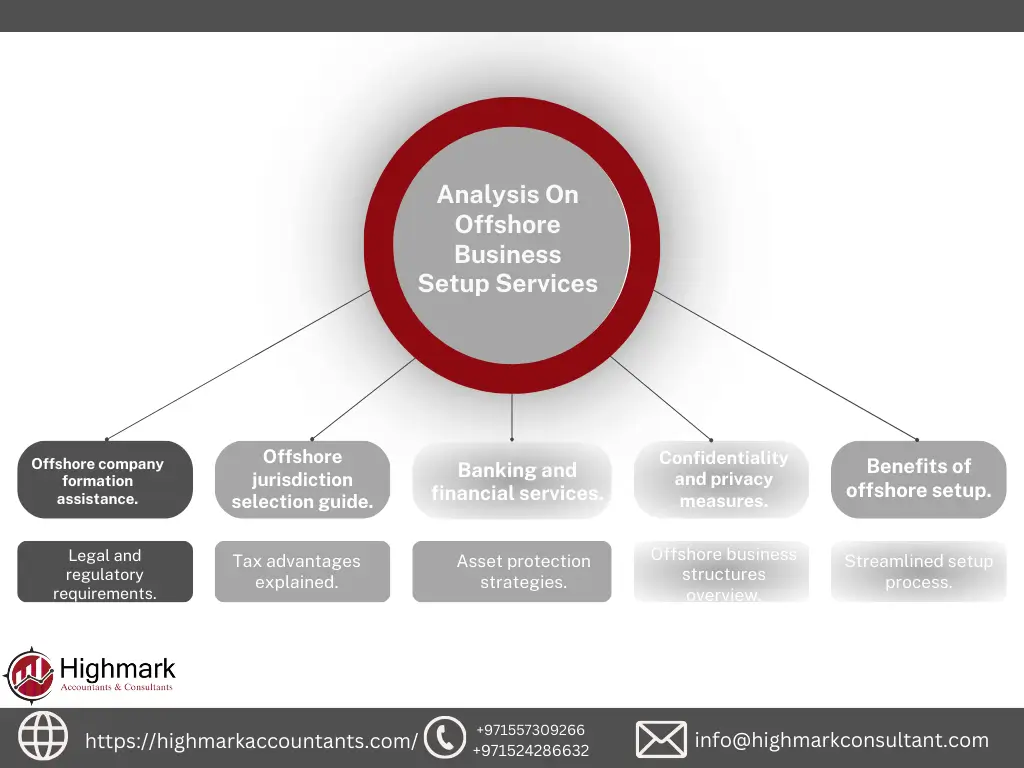Demystifying Offshore Company Formations: Exactly How They Operate and What to Anticipate
Offshore company formations can seem complicated and enigmatic. Offshore Company Formations. These entities, usually developed for tax benefits and personal privacy, run under unique legal frameworks. Entrepreneurs might locate themselves maneuvering through a maze of policies and conformity needs. Understanding the intricacies is vital for success. What are the genuine benefits? What are the potential pitfalls? A closer examination reveals the subtleties that can influence decision-making substantially
Recognizing Offshore Firms: Interpretations and Types
Offshore firms are entities developed in a territory beyond a person's or service's main country of residence, typically for functions associated with tax optimization, possession protection, or regulatory advantages. These business can take various forms, consisting of restricted obligation companies (LLCs), global service companies (IBCs), and offshore trust funds. Each kind serves particular features and interest various requirements.
Limited liability business offer proprietors with defense from individual liability, while global company firms are popular for their adaptability and very little coverage demands. Offshore trusts, on the various other hand, are made use of largely for estate preparation and possession defense.
The choice of territory substantially influences the firm's operations, as some places provide more positive legal frameworks and personal privacy protections. Offshore Company Formations. Understanding the differences between these types is essential for organizations and individuals taking into consideration offshore structures, as each choice brings various ramifications for governance and conformity
The Advantages of Establishing an Offshore Business
Developing an overseas firm can provide various benefits, specifically for those looking for to enhance their financial approaches and safeguard their possessions. One substantial advantage is tax obligation optimization; many territories supply favorable tax rates or exemptions, permitting businesses to keep more revenues. Furthermore, offshore companies can provide a layer of privacy, shielding the identities of owners and investors from public analysis.
An additional benefit is property defense. By placing properties in an overseas entity, individuals can safeguard their wealth from possible lawful insurance claims or political instability in their home nations. This structure additionally assists in global company operations, allowing less complicated accessibility to international markets and varied clientele.
The establishment of an overseas firm can boost reputation and status, appealing to clients who value global business techniques. Overall, these advantages make offshore firm formations an appealing option for people and companies aiming for economic growth and protection.
Secret Factors To Consider Before Creating an Offshore Entity
Before developing an overseas entity, a number of critical factors have to be evaluated. Lawful compliance demands, tax obligation ramifications and advantages, as well as jurisdiction option, play a significant role in the decision-making procedure. Understanding these factors to consider can help individuals and companies navigate the intricacies of overseas company formations effectively.

Lawful Conformity Requirements
When considering the formation of an overseas entity, recognizing legal compliance demands is important to ensure adherence to both worldwide and neighborhood regulations. Potential company owner should familiarize themselves with laws regulating firm registration, reporting responsibilities, and operational requirements in the picked jurisdiction. This consists of validating the lawful needs for directors and shareholders, along with ensuring compliance with anti-money laundering (AML) and know-your-customer (KYC) regulations. In addition, companies must stay mindful of any kind of licensing needs details to their industry. Engaging regional legal and economic experts can offer important insights, guaranteeing that all needed documents is prepared and sent properly. Eventually, complete understanding of legal compliance helps minimize threats and promotes a sustainable overseas operation.
Tax Implications and Advantages
Many service owners take into consideration the tax ramifications and benefits of creating an overseas entity as a crucial consider their decision-making procedure. Offshore companies can offer substantial tax obligation benefits, such as decreased corporate tax obligation rates, exception from specific regional taxes, and the capacity to delay tax obligations on foreign revenue. These benefits can cause improved profitability and cash money flow, making overseas structures appealing for international organization operations. In addition, the potential for tax obligation treaties might even more decrease tax responsibilities. It is crucial for business owners to recognize the complexities included, consisting of conformity with both local and worldwide tax guidelines. Involving with tax obligation professionals is suggested to navigate these ins and outs properly and guarantee suitable tax obligation planning techniques.
Territory Option Variables
What factors should one consider when choosing a territory for overseas business development? Secret factors to consider consist of tax obligation efficiency, regulatory environment, and political stability. Jurisdictions with beneficial tax regimes can considerably influence earnings. The governing landscape needs to offer flexibility and ease of conformity, permitting reliable business procedures. Political security is crucial, as it ensures the safety of assets and continuity of procedures. In addition, the online reputation of the territory can impact client trust and business partnerships. Access to financial services and the schedule of specialist assistance services are additionally crucial. Recognizing local regulations pertaining to personal privacy, reporting, and possession requirements is crucial to determine that the offshore entity aligns with the company owner's goals and lawful responsibilities.
Possession The Refine of Establishing an Offshore Business
Establishing up an offshore business entails a collection of tactical steps that need mindful planning and compliance with useful content worldwide guidelines. Initially, an individual need to select an appropriate territory that lines up with their organization objectives and offers positive tax obligation benefits. Adhering to territory option, the following step is to select an one-of-a-kind company name and prepare the required documentation, including write-ups of unification and investor arrangements.
As soon as the documents prepares, it needs to be sent to the pertinent authorities together with the needed costs. After authorization, the firm will receive a certificate of incorporation, formally establishing its legal existence. The private have to then open up a corporate savings account to help with economic transactions.
Finally, keeping an offshore company includes sticking to ongoing conformity requirements, such as annual reporting and tax commitments, which vary by territory. As a result, understanding each action is necessary for an effective offshore business development.
Legal and Governing Structure for Offshore Companies
While establishing an offshore business can offer considerable advantages, it is necessary to navigate with the intricate legal and regulatory structure that controls such entities. Full Report Each territory has its very own set of legislations that determine every little thing from business development to taxation and conformity needs. These regulations are developed to avoid prohibited tasks, such as cash laundering and tax obligation evasion, and often require complete documents and openness.
Trick components of this structure consist of the need of appointing local supervisors, preserving a licensed office, and adhering to annual reporting obligations. Furthermore, lots of jurisdictions impose specific licensing requirements for certain service tasks. Comprehending these legal stipulations is crucial for making sure compliance and mitigating threats linked with charges or legal disagreements. Engaging with lawful experts who specialize in offshore companies can aid in steering with this elaborate landscape, inevitably promoting a certified and successful offshore service procedure.
Usual Misunderstandings About Offshore Firms
Lots of people hold false impressions regarding offshore companies, often corresponding them with tax evasion and illegal activities. It is essential to acknowledge that these entities can run legally within a framework designed for legit business practices. Clearing up the lawful status of offshore companies can aid resolve these myths and promote a much more exact understanding of their objective.
Tax Evasion Misconceptions
Regardless of the growing popularity of offshore firms, misconceptions regarding their use for tax evasion continue. Lots of people wrongly think that developing an overseas entity is only a means to avoid taxes. Nevertheless, overseas business are often utilized for legitimate purposes, such as property defense, global organization development, and financial investment diversity. The understanding that all offshore activities correspond to illegal tax obligation evasion ignores the complexities of international tax obligation laws and conformity requirements. Additionally, the substantial bulk of offshore jurisdictions have actually applied procedures to fight tax evasion, advertising transparency and information exchange. This mischaracterization can deter reputable organizations and financiers from exploring the possible benefits of offshore firm formations while continuing a negative stigma surrounding these entities.
Lawful Condition Clarified
The lawful condition of overseas business is frequently misunderstood, resulting in a variety of misconceptions. Several believe these entities run in a lawful gray Click Here location, assuming they are naturally illegal or dishonest. In truth, offshore business are legitimate services created under the laws of details jurisdictions, created for various reasons, including property defense and market expansion. One more usual false impression is that offshore companies avert tax obligations totally; however, they go through the guidelines and tax obligation obligations of their home countries. Additionally, some people believe that overseas firms can be conveniently exploited for money laundering or illegal activities. While misuse can happen, a lot of territories implement rigorous conformity and openness regulations to minimize such threats, making certain that overseas firms run within lawful structures.

Handling and Running Your Offshore Company Properly
Properly taking care of and running an overseas firm calls for a critical approach that balances compliance with local regulations and the pursuit of business goals. Effective overseas management entails understanding the territory's tax obligation legislations, reporting demands, and functional guidelines. Employing regional experts, such as accountants and lawful experts, can supply very useful understandings into traversing these intricacies.
In addition, developing clear interaction channels and operational methods is essential for preserving effectiveness. Utilizing modern technology for task administration and collaboration can enhance performance, while routine performance assesses assurance alignment with strategic goals.
Moreover, maintaining durable financial documents is necessary, as transparency fosters trust fund with stakeholders and abide by international criteria. Ultimately, being adaptable to changes in regulation or market conditions permits offshore business to pivot properly, ensuring lasting sustainability and growth. By sticking to these principles, company owner can maximize the benefits of their overseas endeavors while mitigating risks.
Often Asked Concerns
Just how Much Does It Price to Maintain an Offshore Company Yearly?
The expense to keep an overseas firm annually varies significantly, normally varying from $1,000 to $5,000, depending on jurisdiction, services required, and compliance obligations. It is important to take right into account added costs for details needs.
Can I Open Up a Checking Account for My Offshore Firm From Another Location?
Opening up a bank account for an offshore firm from another location is usually feasible. Nonetheless, demands may vary by jurisdiction, frequently necessitating paperwork and verification procedures, which can complicate the remote application experience for individuals.
Are There Specific Nations Understood for Easier Offshore Business Formations?
Specific nations, such as Belize, Seychelles, and the British Virgin Islands, are renowned for their favorable guidelines and streamlined processes pertaining to offshore business developments, bring in entrepreneurs seeking performance and confidentiality in service procedures.
What Sorts of Companies Are Ideal Matched for Offshore Companies?
Specific organizations, such as e-commerce, consultancy, and financial investment firms, frequently benefit from offshore business as a result of tax obligation benefits, personal privacy, and regulatory versatility - Offshore Company Formations. These entities commonly grow in territories that promote desirable organization environments
How Can I Guarantee Compliance With Local Regulations When Running Offshore?
To assure conformity with regional legislations when operating offshore, it is necessary to engage legal experts, conduct thorough research on territory guidelines, and preserve transparent economic documents, thus reducing risks connected with non-compliance.
